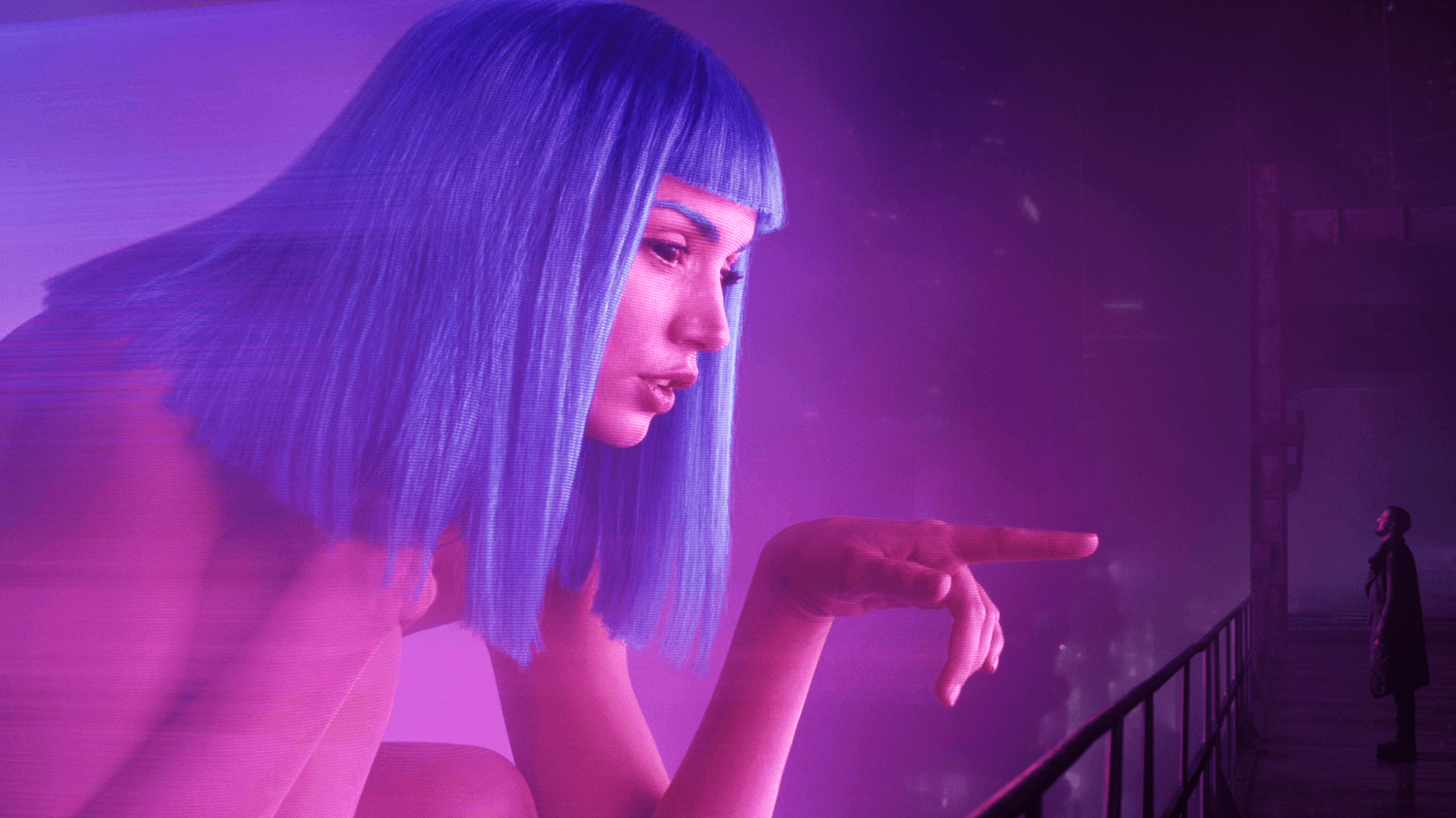You look lonely. I can fix that.
After a day of filming b-roll for a documentary, I sought a rewatch of "Blade Runner 2049" at my local cinema. Despite watching it with my girlfriend and not feeling any sense of loneliness in my life, the film left me with a sense of dread, reminding myself of societal trends that may lead to a loneliness epidemic similar to what is hidden within the layers of this film. Set in a dystopian future, Officer K, a 'skin job' blade runner, embodies the consequences of a life in which one is molded to feel nothing. He is ordered around like a lap dog, forced to be emotionless by his work tests and being a replicant he is downtrodden by society.
CELLS. INTERLINKED.
Despite his non-human and 'nobody' status, he becomes our heroic protagonist in this story, essentially navigating this abstract world of advanced technology as a loner. Officer K confides in JOI, an AI hologram product from the in-world Wallace Corporation. In fact, he prefers her over real-life girls who show interest in him which acts as a metaphor for the artificiality corroding human connections in the digital age. JOI's consistent glitches and hollow, opaque look remind us of her artificial nature and how she is not fit to replace a human being. Within the cityscape, we can observe massive JOI holographic ads with slogans like:
Everything you want to hear!
Everything you want to see!

This represents an unsettling trend in which people seek fulfilment through artificial and desperate means and corporations who are predatory in their exploitation of vulnerable humans. In a particularly memorable scene, a huge nude JOI ad singles K out at his lowest point to say:
“ What a day
You look lonely.
I can fix that.
You’re a good Joe”

The film suggests a future where technology replaces genuine human connections and Villeneuve hints at this danger of losing touch with our humanity, by using JOI as a metaphor for artificial substitutes like pornography or online subscriptions for companionship. At one stage of our story, K makes himself an unappetising-looking meal but JOI enters placing a hologram of a steak atop the food to construct a fantasy for K that things are better than they are. K is unwavering to the hologram steak continuing to follow along with the fantasy. K says to JOI at a stage:
“You are real for me”
A response representative of K's wish fulfilment through his fantasy relationship with JOI. It almost makes sense for K in a way. Perhaps, he prefers JOI as she is excluded from the intricacies of human irregular emotion much like himself.
Earlier this year, I conducted an essay for my university tasks that involved a segment in which I reflected on Japanese society. I was concerned particularly with the sexlessness statistics in Japan. Japan is dwindling in population but yet is the most technologically proficient and advanced country in the world, the statistics raised concerns about the impact of advanced technology on real-world connections despite these impressive technological advances, the convenience of this may come at a cost of the loss of genuine, physical human interactions for many.
In my eyes, the loneliness depicted in "Blade Runner 2049" could soon be a large-scale societal issue. If the current trajectory of technological advancements continues, whilst men continue to isolate themselves we may end up with a real life loneliness epidemic. We already see JOI-like entities in our current world, such as OnlyFans models that people can empty their bank accounts to and communicate with whilst everything about their relationship is a complete fabrication such as the hologram steak motif.
Perhaps, within the next few decades, we might have real-life equivalents to JOI in our own timeline, further emphasizing why we need to carefully distinguish a line between the overconsumption of media and the preservation of human contact.

Comments
Post a Comment